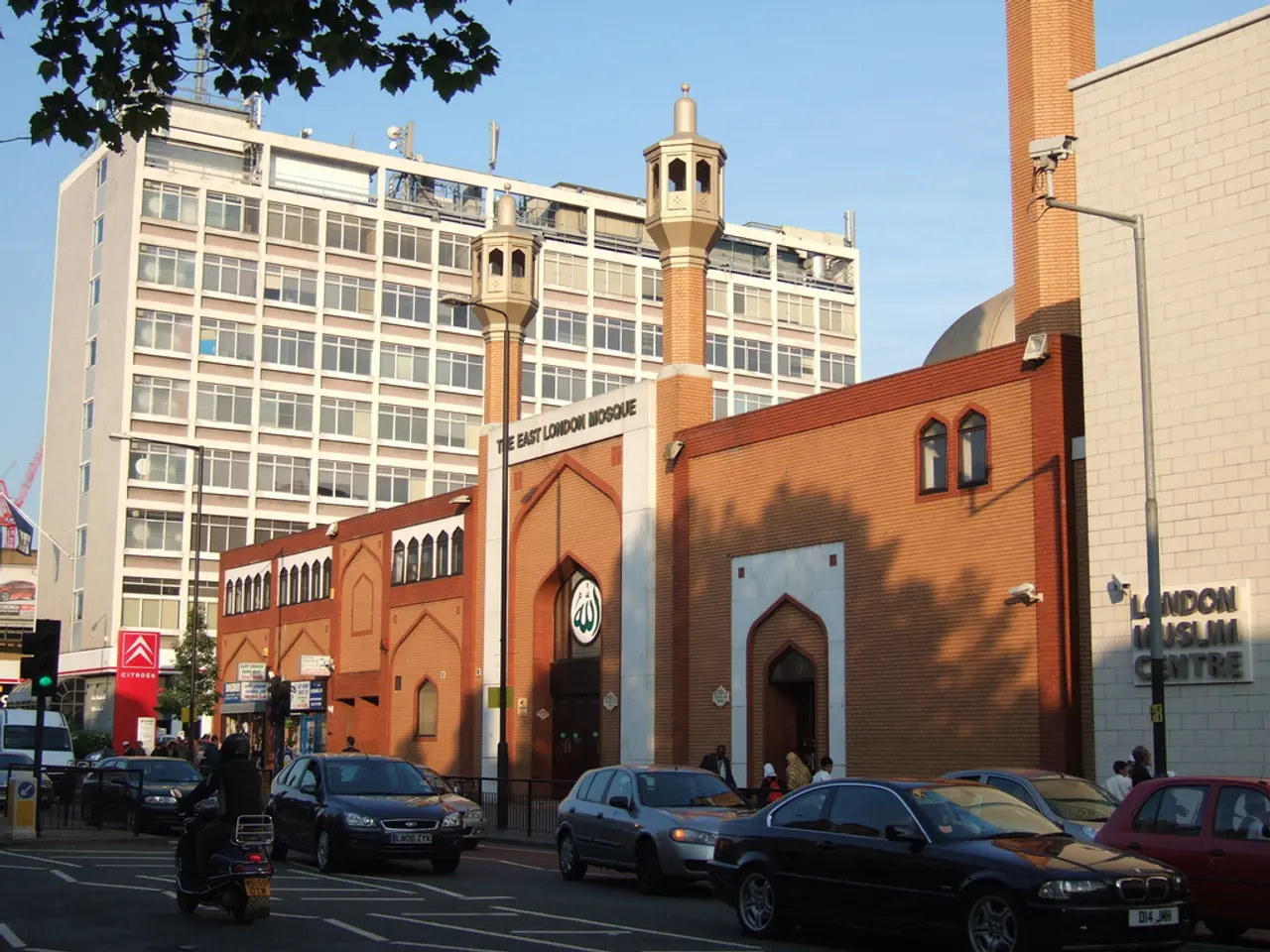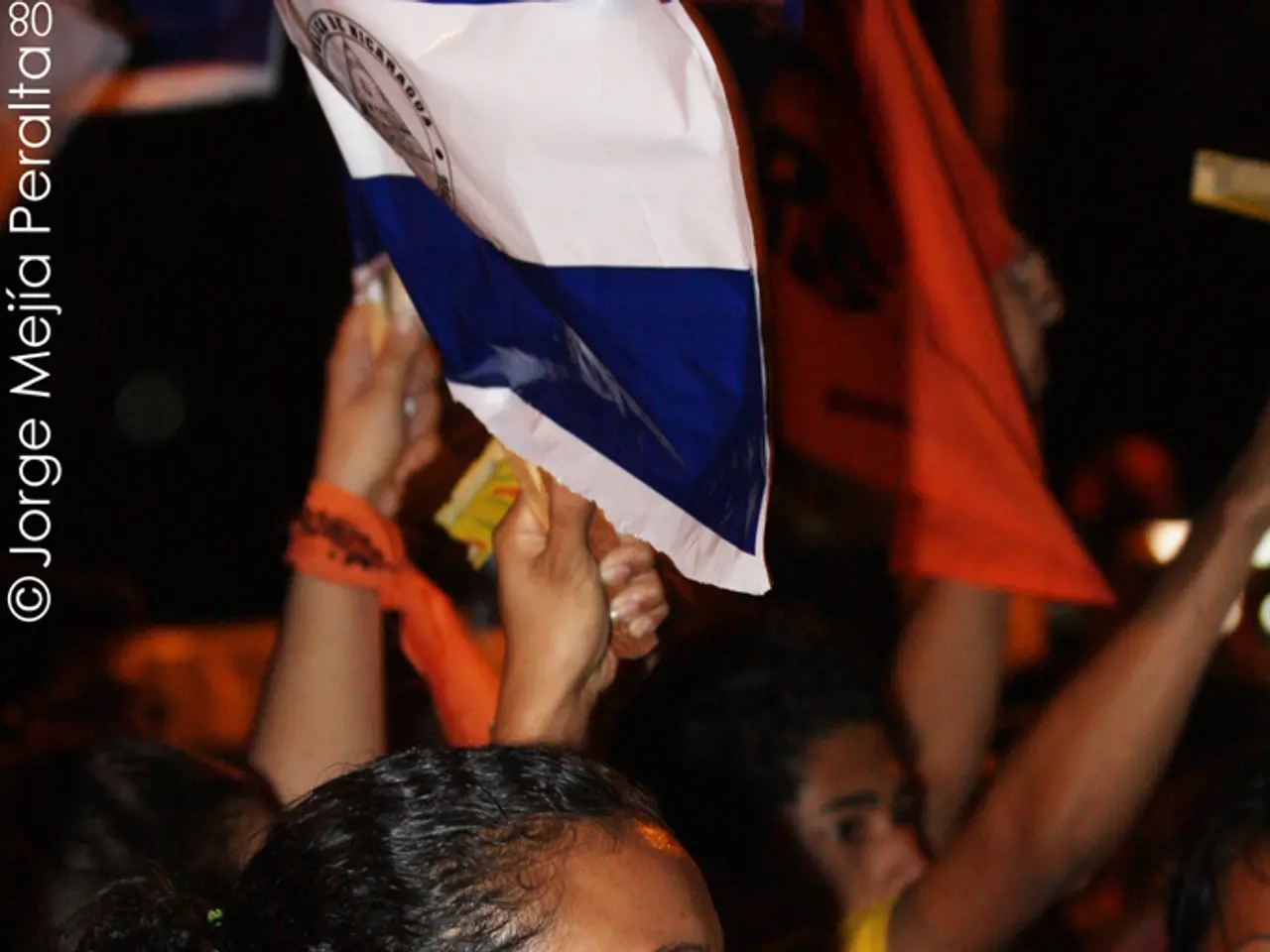Arson at DITIB Mosque in Gathe Area
In an unsettling turn of events, an arson attack was reported at the Ditib Central Mosque in Germany. The incident, viewed as a criminal act and an "arson attack" by the Social Democratic Party (SPD), has sparked widespread concern and condemnation.
SPD member of the Bundestag, Helge Lindh, has expressed his dismay over the attack, stating that it is not just an attack on the mosque community but on all of us. He called for an end to fostering a climate of suspicion against Muslims and the degradation of Muslims in the country. Lindh emphasized the need to prevent Muslims from living unprotected in the country and being attacked.
Servet Köksal, chairman of the SPD, strongly condemned the incident as a "cowardly act." He stated that an attack on a religious building is an attack on all people, underscoring the importance of unity in the face of hate crimes.
Investigations into the arson attack are being taken "very seriously" by the authorities. Soot deposits were found on the wall, the closed gate, and the sidewalk, presumably from burned paper. The police discovered ashes on the sidewalk, further corroborating the evidence of a fire.
Fortunately, no one was harmed in the incident. The SPD expressed their gratitude that no casualties were reported. However, Lindh stated that such attacks lead to an increase in anti-Muslim sentiment in Germany.
Historically, instances of attacks on mosques in Germany have been reported sporadically, often linked to broader issues of religious and ethnic tensions. More recently, hate crimes targeting religious sites, including arson attacks, have been documented in various countries, reflecting a rise in hate-motivated violence against religious minorities.
Such attacks are often driven by Islamophobia, rising far-right extremism, and xenophobic sentiments in parts of German society. Increased nationalist and anti-immigrant rhetoric in Europe has sometimes contributed to targeting Muslim communities and their places of worship. Broader geopolitical tensions, such as conflicts in the Middle East, can sometimes exacerbate local inter-community tensions, leading to hate crimes.
German authorities typically investigate mosque arson attacks as hate crimes, often increasing security around vulnerable sites. Community and interfaith groups in Germany frequently organize demonstrations and solidarity events to counter Islamophobia and support Muslim communities. On a legal and policy level, Germany has strengthened hate crime laws and increased surveillance of far-right groups to prevent such attacks.
In conclusion, while specific recent data on a rise in mosque arson attacks in Germany is not directly available, it is recognized that such hate crimes occur and are often linked to Islamophobic motivations, far-right extremism, and broader social tensions. German responses include legal action, increased security, and inter-community solidarity efforts, aiming to prevent and respond effectively to these hate crimes.
Helge Lindh, an SPD member of the Bundestag, appealed for an end to the climate of suspicion against Muslims and the degradation of Muslims in the country, suggesting that the arson attack on the Ditib Central Mosque is not just an attack on the mosque community, but on all of us. Servet Köksal, chairman of the SPD, denounced the arson attack as a cowardly act and emphasized that it is an attack on all people, reinforcing the importance of unity in the face of hate crimes.








